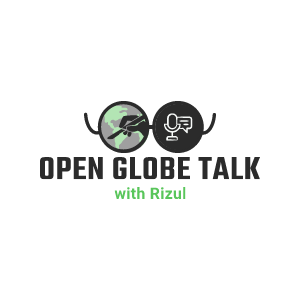May 5th, 2023
Episode 35: Dr. Ike Ahmed, MD
A discussion on
“Interventional Glaucoma & The Constant Journey of a Global Innovator”
Synergistically disrupt the field of glaucoma in a positive direction
Video
Audio
Dr. Ike Ahmed, MD
For our season finale, we have the pleasure of being joined by Dr. Ike Ahmed, a renowned specialist in glaucoma. Dr. Ahmed holds various positions in both academia and private practice, including serving as the director of the Alan S. Crandall Center for Glaucoma Innovation and as the Chief Innovation Officer and former Medical Director of Prism Eye Institute in Canada. His contributions to the field of ophthalmology are widely recognized, particularly for his development of tools and techniques like Micro-Invasive Glaucoma Surgery, which has revolutionized the treatment of glaucoma. We are truly grateful to have innovators like Dr. Ahmed driving progress in this field, and we extend our sincere thanks to him for joining us on the show today!
Key discussion points:
How did you get interested in Ophthalmology?
Always wanted to do surgery, thought about trauma surgery initially.
Some key aspects of the field that you thought you could address as you were learning about the field of ophthalmology
Thinking in an unconventional way was natural
First and only career mentor was Dr. Alan Crandall, who provided the inspiration for glaucoma.
How did mentorship help you decide on Glaucoma?
Surgical skills were renowned
Humble and wanted to help people for the sake of helping them.
“As a teacher, he allowed trainees to spread their wings in a safe environment”
Tenacity
Positive feedback is important but it’s the intention of why people criticize is the problem.
It is important to build people’s reputations so that you can foster a good environment for learning.
A time when you experienced a setback when developing a technology or product and how did you overcome it?
Early in career, lots of pushback for innovation and creativity
How innovative technologies have applied in global ophthalmology settings?
At Moran, it is recognized to innovate while understanding global implications
Low-cost MIGS applied early in disease course
Cost is a big deterrent but the bigger issue is training.
Which countries have significant needs?
The need is everywhere. Screening alone is a big problem.
Especially relevant for glaucoma
Follow-up is a big challenge in the developing world.
Non-invasive procedures have real potential in addressing glaucoma early.
Delivering culturally appropriate care
Understanding the system and working within that system is important.
Be open-minded about learning both ways
Education empowers people! The education piece is very important and needs to be addressed.
Things happen slowly and maybe surgery may not even be as important at the beginning of the intervention.
Be a good neighbor and listen to connect with people!
A memorable time as you deliver care in the global space.
Trip to Ghana
“The impact on an individual life really stood out to me and it still does.”
Seeing colleagues amplify their skills and do better!
There’s a lot of learning from our patients
Learnt particularly going abroad.
Involving industry in global ophthalmology to support research.
First, always do this ethically.
Benefits from collecting data
How do you see glaucoma evolving?
Interventional glaucoma
More active than passive
Intervene early not at the end of disease.
Nonsurgical (gene therapy, neuroprotection)
Glaucoma should be treated at the comprehensive level - democratize the process with proper training
Advice you would give to an early trainee interested in glaucoma.
Think about your initial reason for entering medicine.
Don’t lose that passion.
Challenge the norm and do things differently.
Put yourself in uncomfortable positions to prove to yourself that passion.
We need bright minds in this field
Don’t follow the crowd even if it is challenging!
Episode-based Resources:


